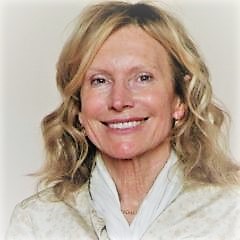
Margarita Estevez-Abe
Title: LTC System and Pandemic Preparedness: Lessons from the COVID19
Abstract
The current pandemic has exposed all advanced industrial democracies to the same shock around the same time. The experience in Wuhan, China, had taught us that COVID-19 primarily caused deaths in the elderly population sparing the young. This information should have alerted many countries to protect the elderly. Unfortunately, most countries failed to do so. Yet a handful of countries were more successful. What explains why some countries succeeded while others failed? My presentation seeks to answer that question.
Bio
Margarita Estevez-Abe is an Associate Professor in Political Science, at the Maxwell School, Syracuse University, US. She took her PhD. degree at Harvard University, 1999. Margarita specialises in comparative political economy of advanced industrial countries. She is interested in how political and economic institutions are constructed differently across countries and in their varying effects on politics and ordinary people’s lives. Her work so far has dealt with Japanese political economy, the Varieties of Capitalism, and comparative political economy of gender.

Peter Moss
Title: Time for a change – rethinking time in education and care policy and practice
Abstract
‘Time is money’ goes the saying; no surprise, perhaps, that it first appeared (in an essay by Benjamin Franklin) in the mid-18th century, at the dawning of the age of industrialisation and modern capitalism. It seems to encapsulate a view of time that has become prevalent: instrumental, mechanistic, economistic; time as linear and predictable; time that values the future, not the present or past; time as efficiency and productivity; time as gendered in its use; time as a unit of measurement and a technology of management. In my keynote presentation, having developed this view of time, I want to share some concepts and experiences I have encountered in my own work that have subverted or disrupted it, leading me to other ways of thinking about time and their implications for policy and practice: slow knowledge and pedagogy and lines of flight and intensity in the event in early childhood education and care; fathers’ quotas and lifecourse approaches in leave policy; and a relational ethics of care and the discipline of social pedagogy in so-called ‘care’ services. Having done this, I will try and draw out some common themes and conclusions – though at this point, I have not yet had the time to do so!
Bio
Peter Moss is Emeritus Professor of Early Childhood Provision at the Thomas Coram Research Unit, UCL Institute of Education, University College London. His interests include early childhood education and care; the workforce in children’s services; the relationship between care, gender and employment; the relationship between early childhood and compulsory education; social pedagogy; and democracy in children’s services. Much of his work over the last 25 years has been cross-national, in particular in Europe. He is co-founder of the International Network on Leave Policies and Research and co-editor of the network’s annual review of leave policies. Recent books include: Transformative Change and Real Utopias in Early Childhood Education; Loris Malaguzzi and the Schools of Reggio Emilia (co-edited with a working group from Reggio Emilia); Alternative Narratives in Early Childhood: an introduction for Students and Practitioners; Parental Leave and Beyond (co-edited with Ann-Zofie Duvander and Margaret O’Brien); and Transforming Early Childhood in England: towards a democratic education (co-edited with Claire Cameron).

Daniela Del Boca
Title: Women’s and Men’s Work, Housework and Childcare, before and during COVID-19
Abstract
During the last year, the social distancing measures adopted to combat the spread of the COVID-19 virus have placed tremendous burden on families. With a new survey data collected in April and December 2020 from a representative sample of Italian women, we analyse the impacts on working arrangements, housework, childcare and home schooling. Empirical results show that in Italy as in other countries these measures impact negatively family well-being and exacerbated gender differences within the family.
Bio
Daniela Del Boca, Ph.D. University of Wisconsin-Madison, is Fellow of Collegio Carlo Alberto, Professor of Economics at the University of Turin, and Director of CHILD and Impact Evaluation Unit at Collegio Carlo Alberto. Her main interests are labor, household economics and child development. She has published several books and articles in international journals(including American Economic Review, Journal of Economic Theory, Review of Economic Studies). She is in the Editorial board of the Review of Economics of the Household and Journal of Human Capital and co-editor of lavoce.info.